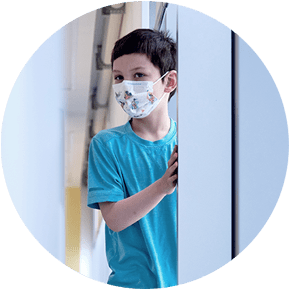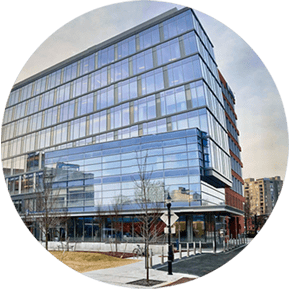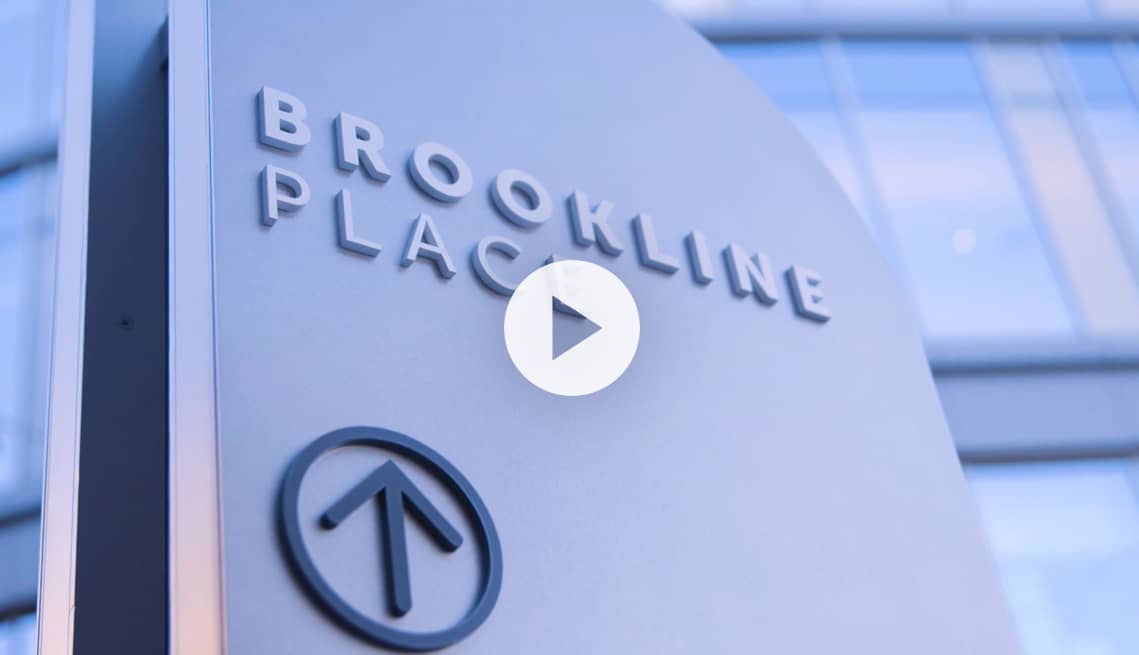A Visit to Boston Children’s Brookline
The newly opened Brookline facility offers a home for patients and their families, researchers and clinicians, along with limitless opportunities for collaboration.
When Alexander Li Cohen, MD, PhD, a physician-scientist in the Department of Neurology, joined the first group of physicians that moved into Boston Children’s Brookline, he was thrilled by the setting and its patient-centric design.
“This environment was designed from the get-go for kids with neurodevelopmental and sensory difficulties,” he says, referring to patients like 7-year-old Wally, who has autism.

Designed for exploration
This past spring, Wally’s appointment with Dr. Cohen was their first in-person meeting in nearly two years. His mom Kimberly loved watching her son respond to the building, which houses the new Brain, Mind & Behavior Center. “The exam room has art on the walls that was intended to be touched,” which is exactly what Wally wants to do.
“It was remarkable to watch him explore the space; everything was suited for him,” says Kimberly. “I didn’t worry he was going to bolt down the hallway and bounce into somebody while they’re in the middle of something.”
When children are secure and comfortable, they’re more likely to have a positive experience.”
A unique synergy
While physicians are excited for their patients, the building also offers tremendous possibilities for scientific collaboration.
“Boston Children’s Brookline has afforded the Brain, Mind & Behavior Center space to grow and allows for the first time our clinical, research and administrative teams to be in the same building,” says James Wade, a Trust Board member and an early proponent of the new facility.
“When a family comes for their research visit, they’ll be in the same building where they receive clinical care. That’s an advantage for two reasons,” says Elizabeth Harstad, MD, MPH, a physician-scientist in the Developmental Medicine Center. A familiar environment can help comfort families. And close connections between researchers and physicians can spur advances in treatment.
“Families want answers,” says Dr. Harstad. When she diagnoses a toddler with autism, parents want to know if their child will speak, what support they’ll need in school, what life will be like. Her research already provides some insights, but she expects the tight integration between research and care at Boston Children’s Brookline will accelerate the pace of breakthroughs. For example, physician-scientists might investigate tailored treatments for subgroups of patients with autism or identify a biomarker to help predict a child’s outcome.
“A building is just a structure. Boston Children’s Brookline is impressive. People make it fantastic,” says David Glahn, PhD, associate chief for research, Department of Psychiatry. “We’ll have transformative conversations in this building.”
A building is just a structure. Boston Children’s Brookline is impressive. People make it fantastic.”
Physicians who treat teens and young adults with brain-related illnesses can engage with developmental pediatricians who care for children with autism and scientists who study mechanisms that predispose children to psychotic disorders. The collaborations will shed new light on these conditions, fueling innovative approaches to diagnosis and care.

“There’s much to be excited about,” says Dr. Glahn. “Integrating Psychiatry, Behavioral Neurology and Developmental Medicine will expand our clinical and research focus to the whole child, an approach that will improve our ability to care for today’s patients and accelerate development of future therapies for children everywhere.”
Dedicated child life, phlebotomy and radiology teams complement our clinical and research experts.
Additional highlights include unique areas such as quiet waiting rooms for children who are overwhelmed in the larger waiting room and state-of-the-art EEG and MRI services. A mock MRI scanner, constructed of many of the same materials as a real scanner, lets patients experience what it’s like to be in a closed space before an MRI exam.
As children like Wally investigate the building’s features, physicians and scientists will investigate life-changing therapies, new diagnostics and care models.

Take a firsthand look at Boston Children’s Brookline, a state-of-the-art home for life-changing patient care and research.
